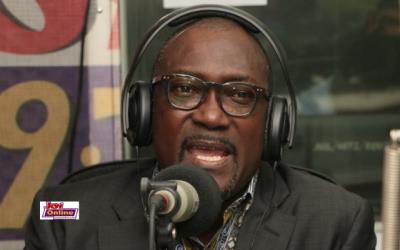The Executive Director of the Ghana Center for Democratic Development (CDD-Ghana) has defended the Supreme Court’s ruling upholding the right of Deputy Speakers of Parliament to vote.
According to Prof. H. Kwasi Prempeh, it is “a constitutionally correct decision, no matter what one might feel about the outcome politically.”
The Apex Court presided over by Justice Jones Dotse ruled that a Deputy Speaker can be counted during the formation of a quorum for Parliamentary decision-making and participate in voting while presiding over the parliamentary business.
There has been an enormous uproar following the judgement. While the Majority Caucus described it as a ‘refreshing’ outcome.
Many, particularly the Minority in Parliament, says the ruling is absurd and could destroy the processes in the House.
But Prof Prempeh argued that “the longevity of a practice does not cloak that practice with constitutionality.”
“No matter how longstanding a practice, its constitutionality cannot be established or presumed until and unless it is challenged in an appropriate constitutional case. Thus, the fact that this is how Parliament has done its business all this while is not a good enough argument, constitutionally speaking.”
Prof. Prempeh also believes that the influence of Deputy Speakers has been overestimated in the ongoing controversy.
“Presiding does not, in and of itself, present much of a conflict of interest to cause a Deputy Speaker to forfeit their vote, especially if he or she were to be required by House rules to vote last or cast a vote; only when there’s a tie.”
He subsequently suggested that “if we do not want presiding Deputy Speakers to vote, the solution is simple: Don’t let them be MPs. Make them like the Speaker; not an MP and, therefore, not entitled to vote.”
“As long as presiding Deputy Speakers are, first and foremost, MPs elected to represent communities of voters in Parliament, Parliament cannot reasonably deprive them of their right to vote merely by virtue of the fact of presiding over a sitting of Parliament.”
Nevertheless, Prof. Prempeh said there is no need for a constitutional amendment for his proposal.
“There’s nothing really wrong with both Deputy Speakers being MPs and retaining their vote when they preside. This is why we must take the Constitution seriously when it says that the 1st and 2nd Deputy Speakers must come from different parties.”
“That way, the rival parties in Parliament will each have one Deputy Speaker, both of whom get to vote when they preside,” he added.
Latest Stories
-
Minerals Commission, Solidaridad unveils forum to tackle child labour in mining sector
1 min -
Election 2024: Engagement with security services productive – NDC
3 mins -
‘Let’s work together to improve sanitation, promote health outcome’ – Sector Minister urges
4 mins -
Ellembelle MP cuts sod for six-unit classroom block at Nkroful Agric SHS
7 mins -
‘I’ll beat the hell out of you if you misbehave on December 7’ – Achiase Commanding Officer
10 mins -
AFPNC leads the charge on World Prematurity Day 2024
16 mins -
Court remands unemployed man over theft of ECG property
22 mins -
Election security rests solely with the police – Central Regional Police Command
24 mins -
NCCE engages political youth activists at Kumbungu on tolerance
24 mins -
‘In Mahama’s era students lacked chalk, but are now receiving tablets’ – Bawumia
34 mins -
Project commissioning not a ploy to attract votes – Oppong Nkrumah
36 mins -
CBG records GH¢1bn revenue in Q3
38 mins -
Mahama vows to create an agro-processing zone in Afram Plains
52 mins -
Political parties should plan for losses, not just wins – IGP advises
54 mins -
524 Diasporan Africans granted Ghanaian citizenship in ceremony
55 mins

